Abhishek Mande
Eighty women from India's first all-girls running club -- Runner Girls India -- will participate in the Mumbai Marathon this year. Naina Lal, who co-founded the club in 2007 and runs it in Bengaluru, tells Abhishek Mande what it's all about.
Sometime in August 2007, Naina Lal, Sabine Tietge, Farha Mehmood, Subhalakshmi and Meghana Sudarshan, along with a few of their girlfriends, gathered at Cubbon Park in Bengaluru and started running.
Three years and four months later they haven't stopped. And their tribe has increased -- from 14 to 250 members.
Over the months since their first run, they managed to get themselves a name: Runner Girls India (RGI), a website: runnergirlsindia.com; and a good deal of support from corporate houses and the media.
It would've been difficult not to get noticed. Runner Girls India is the first-of-its-kind running club in India, exclusively for the fairer sex.
Forty six-year-old Lal, who is a mother-of-two, tells me that the group is "meant for girls who are interested in long/short distance running. Membership is completely voluntary and free."
To be part of this group, all you need to be is a woman and passionate about running! The oldest in the group, for instance, is Suneetha Prasanna, an HR consultant who is well over 60 years of age.
Lal, who works for a company that promotes India-bound programmes for young adults, says that the group relies on each of its members to take responsibility for the runs, to keep the group going and to promote running among girls all over India.
"Currently, we are active in Bangalore, Chennai, Hyderabad and Mumbai. Delhi is starting sometime this year!" she says, sounding evidently kicked by the idea.
'Objective is to inspire women in India to run'
Image: One of the senior participants at the Women Power 5K Run in Bengaluru celebrates at the finish lineSo how does Runner Girls India work?
Lal says: "RGI organises Girls-Only-Runs (GOR), every alternate Saturdays of the month, in different locations."
"These runs are fun, social, non-competitive and open to any woman who loves to run. There's no need to register, you just show up and run with us."
"Our members are everyday women of any age, size, shape, or athletic ability. Our common objective is to inspire women in India to run for fun and fitness."
Besides GORs, RGI also organises quarterly running events in Bengaluru to promote the group and to encourage women to run.
"We have the support of our community, families and sponsors who have stood by us and helped us during these events," Lal says.
Today, Lal says, there are an estimated 250 members in the group scattered across the four chapters in the country, with each chapter organising individual runs in their respective cities.
RGI is a completely internet-based group. To join it, you simply have to send in a request to them via e-mail or Facebook.
'It has helped all of us deal with our emotions better'
Image: Women in the group have often found solace in each other"Once you become a member you will be informed of the locations and meeting times for the GORs through posts and updates," Lal says.
"The Saturday runs usually last for a little over an hour-and-a-half to two hours, with each girl covering variable distances between 5 kms and 10 kms based on their training schedules. At the end we normally meet up and go for breakfast nearby!"
The idea behind starting an all-girls running group, Lal says was essentially to have fun.
"We used to run with the boys and realised that we are a little hesitant when it comes to running speed. Athough some girls are fast runners, most of us were slower than the guys and so there was an automatic segregation happening at the runs."
"So we decided, why don't just a few of us meet up and run? The initial runs were very chatty. We realised that it was fun this way!"
We can talk about all kinds of topics and share girly things freely, without the fear of some guy listening in to our conversations!"
Besides the fun and fitness angles, the group has also encouraged a lot of girls.
Lal says that running in general and as part of RGI has helped her a lot. "It has calmed me down, made me more patient, focused and healthy," she says adding that the community feel that she gets from being part of the group is something that gets her out of bed early in the morning and hit the road, even on days when she'd rather pull a blanket over her head.
Being part of RGI has also taught her a life lesson: "Patience, and to have faith in your passion. The rest will follow sooner or later," she says.
The group has helped others deal with their emotions better.
"It isn't just about running," Lal says. Over the years RGI has extended into something of a social group too, as the ladies bond a lot after the run is over.
Some of the women who go through bad patches find solace in their fellow runners.
Others have found it a platform where they can connect with people who think on similar wavelengths.
Even others have found love within the larger running community of Bengaluru that the group is a part of.
"It has helped all of us deal with our emotions better," Lal says.
'Many feel women running isn't a good idea'
Image: Sabine Tietge, one of the co-founders of the club, who's on a break after becoming a mother recentlyOver the years, Lal and her group have tried to address many issues that women face and apprehensions they have with running.
The perception, Lal says, is that it is generally unsafe for women to run on the streets. Many women, she points out are apprehensive of their body shapes, the clothing involved. Some are wary of wearing a pair of running shorts, for instance, and some wonder if they're too fat or too old to start running.
"Many feel women running isn't a good idea in general," she says, adding that sometimes comments from strangers and the strange stares they get from people around them does make it an unpleasant experience.
As a group though, the real challenge for Lal and her peers is to keep everyone motivated.
"The challenge is lack of participation from members. We have to keep creating some excitement for the members to show up at the runs. Also, this is a completely voluntary group so it's very hard to motivate girls to find time to work for RGI in terms of time and ideas."
For instance, of the 14 women who stood at Cubbon Park in 2007, Naina is one of the few who is still actively involved in the day-to-day functioning of the group.
Some of them got married, others had babies and some moved cities. And while most of them continue to run in other groups, or have taken up other forms of exercises like cycling, Lal has become the sole point of contact who co-ordinates and keeps the club running, so to speak.
She isn't complaining, though. Lal is one enthusiastic mom who wants to organise events more frequently so that there is better participation.
The high moment came when DNA ran an article after a running event they'd organised on October 25, 2009.
Lal recollects, " It was the first event of its kind where only women could participate, so there was a lot of buzz in the air. In our running gear with sweaty faces, we did not think that anyone would be dying to photograph us. But we were wrong. There were reporters vying to talk to us!"
'For marathons, most of us train individually'
It isn't always fun and games, though, Lal tells me, especially when it comes to preparing for a marathon.
"The training usually starts a few months before the race day. Depending on what distance one is running, a weekly schedule is drawn up. This includes a mix of long and short runs. In addition, we add some cross-training hours as well."
"Care is also taken of the diet and rest during the training period. Most of us train individually, with a buddy or in smaller groups doing the same distance normally. The running trails and tracks are the same that we usually use for GORs and so we meet up with the group on Saturdays at the GORs!"
She adds, "Given the distances and time/work commitments, it's easier to follow the schedule in smaller groups."
For the Mumbai Marathon too, theyv'e been following the same pattern. After having drawn up their schedules, everyone across various cities trains in small groups or with buddies.
A day before the marathon, though, everyone will land in the city, collect their numbers, bond over coffee and call it a night.
The next morning, all 80 will be up early and head to the starting point. There they will wait with thousands of others and jostle for space. And when they hear the gunshot, like everyone else they'll run.
Tips for Indian women marathoners
Image: Tips for Indian women marathonersCurious stares and sometimes unwanted attention are just some of the fallouts that a women athleteswho trains on India's roads faces. The Runner Girls India website lists some precautions one must take and suggests how one can deal with a difficult situation:
Before the run
- Get yourself a running partner if possible.
- Tell someone or write down where you plan to run and at what time you will return.
- Carry some ID and a mobile phone or change for a phone call.
- Take a whistle with you.
- Do not wear a radio/headset/earphones or anything that might distract you to ensure that you are completely aware of your environment.
- Avoid unpopular areas, deserted streets, lonely trails and most importantly avoid unlit routes at night.
- Frequently change the route and the time of day that you run.
- Run in familiar areas. Note the location of neighbours you trust along your route.
- Know where police are usually to be found and where businesses, stores, offices are likely to be open and active.
During the run
- Always stay alert. The more aware you are, the less vulnerable you are. Think about possible escape routes in case of a confrontation.
Take notice of who is ahead of you and who is behind you. Know where the nearest public sites are with some general activity -- there is usually safety in numbers. - When in doubt, follow your intuition and avoid potential trouble. If something seems suspicious, do not panic, but run in a different direction.
- Run clear of parked cars, bushes, dark areas.
- Run against traffic so that you can observe the approach of automobiles.
- If the same car cruises past you more than once, take down even a partial license number and make it obvious that you are aware of its presence (but keep your distance).
If confronted
- Run toward populated areas, busy streets, open businesses.
- Ignore jeers and verbal harassment. Keep moving.
- Use discretion in acknowledging strangers. Be friendly, but keep your distance and keep moving.
- Do not approach a car to give directions, or the time of day. Point toward the nearest police or information source, shrug your shoulders, but keep moving. If you feel you must respond, do it while moving. Don't panic and don't run towards an even more isolated area.
If attacked
- Keep as calm as possible. Try to fix a description of the attacker in your mind.
- Do not show fear or plead -- this intensifies aggression in most cases.
Try to talk to the aggressor and look for an escape opportunity -- a moment of indecision or distraction on the attacker's part. - Do not fight or struggle with the attacker unless there is clearly no other way out, especially if you are untrained in self-defence.

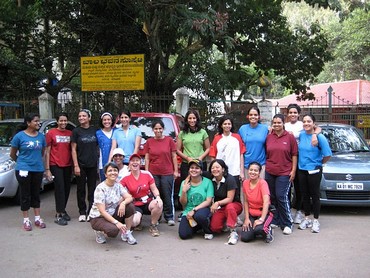

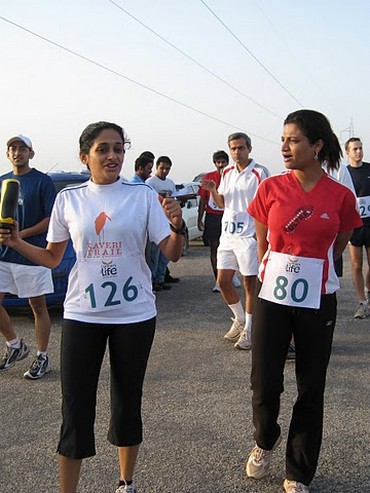
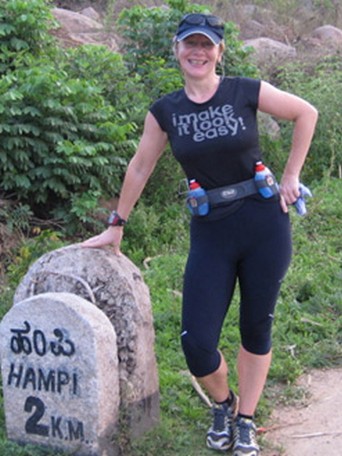
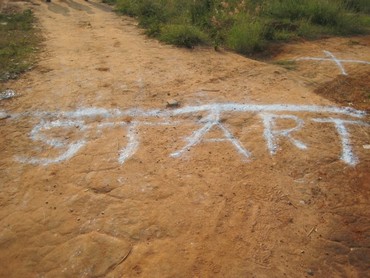
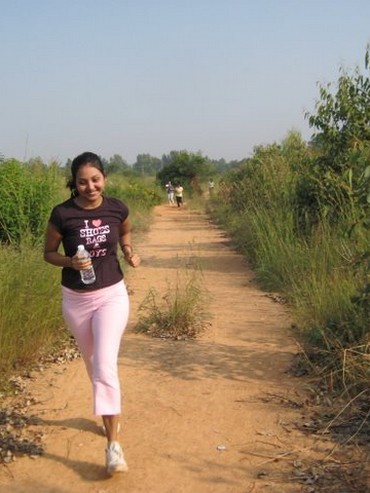
Comment
article